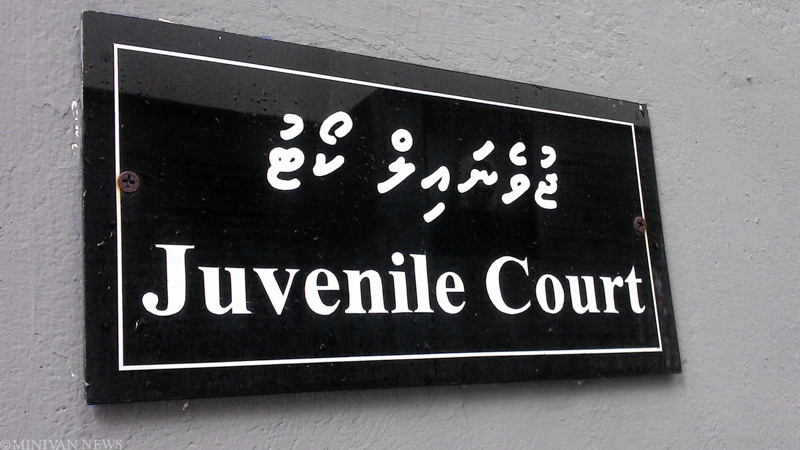Social activism website Avaaz has said it remained concerned at the “appalling state” of women’s rights in the Maldives, despite welcoming a decision by the High Court this week to overturn a controversial flogging sentence handed to a 15 year-old girl charged with ‘fornication’.
Avaaz, which earlier this year launched an online petition signed by over two million people calling for the minor’s sentence to be quashed, has expressed continued concern that justice remains “out of reach” for Maldivian women.
The flogging sentence – handed to the minor by the Juvenile Court in February after she had been charged with ‘fornication’ – was overturned by the High Court on Wednesday (August 21) after the girl was found to have previously denied confessing to having had consensual sex with an unknown partner.
Sources from Feydhoo, in Shaviyani Atoll, where the girl is from, previously told Minivan News that islanders had raised concerns regarding the suspected abuse of the minor as far back as 2009.
Local people were said to have suspected that the girl had been the victim of sexual abuse, not just by her stepfather – who has subsequently been charged with several sex offences – but also by a number of other unidentified men from the island.
The High Court concluded that the minor, found to be suffering from post-traumatic stress disorder, was also unable to correctly define pre-marital sex according to the law.
“The High Court’s ruling is a step forward, but the Gender Ministry should now ensure that the girl receives a proper education, is not sent back to the custody of relatives who failed to protect her, and ensure that she doesn’t end up ghettoised because of stigma,” stated Avaaz.
“Glimmer of hope”
After visiting the country earlier this year to lobby the Maldives government to overturn the minor’s case, Avaaz said it continued to advocate for systemic legal reforms to overcome “serious hurdles women and girls face in trying to get justice for gender-based crimes”.
“Today people in the Maldives and across the globe celebrate that this young girl is free and won’t be flogged,” said Avaaz Campaign Director Jeremy Waiser. “It is a glimmer of hope which must not be an isolated case – now it’s time to listen to the majority of Maldivians and kick start major reforms to protect women and girls and put an end to flogging for consensual sex outside of marriage, once and for all.”
Avaaz pointed to the recently published results of a survey conducted on its behalf by Asia Research Partners that concluded that nearly two-thirds of Maldives nationals surveyed would support a moratorium on flogging.
According to Avaaz, the first survey of its kind to be conducted in the Maldives found an “overwhelming” 92 percent of those surveyed believe that laws and systems to protect women from sexual assault should be reformed.
With the upcoming presidential election scheduled for September 7, Waiser argued that ensuring rights for both women and girls should be treated as an issue of huge importance by all candidates standing next month.
“The ruling and the recent opinion survey should serve as a wake-up call to all candidates and parties that they cannot afford to neglect one half of the Maldivian population – women and girls want to live without fear of persecution and with dignity,” he said.
“The vindictiveness with which the Prosecutor General’s office pursued the case against this Maldivian child highlights the dangers that women and children face in the Maldives,” the statement concluded.
“Politicised” issue
Some government figures have been critical of international campaigns targeting the reputation of the country’s lucrative tourism industry in order to push for legal reforms.
Discussing the campaign by Avaaz in the Maldives, Attorney General (AG) Azima Shukhoor criticised unnamed groups for having “politicised” the issue, arguing such campaigns they had complicated the work of Maldivian authorities.
In March this year, former Deputy Tourism Minister Mohamed Maleeh Jamal directly questioned the motives behind the Avaaz campaign calling them “dubious”, despite accepting a need for “capacity building” in parliament and other institutions.
“People should not be doing anything to damage the [tourism] industry. In Switzerland, you would not see a campaign designed to damage Swiss chocolate. Likewise you would not see a German campaign to damage their automobile industry,” he said.
However, organisations like the Human Rights Commission of Maldives (HRCM) have this week stressed the need for strengthening measures to protect victims of sexual abuse to prevent other similar cases from occurring.
Meanwhile, Amnesty International – which has previously warned that the 15 year-old’s case was the “tip of the iceberg” in terms of the country’s treatment of victims of sexual offences – has released a statement this week calling for a moratorium on flogging.
“Annulling this sentence was of course the right thing to do. We are relieved that the girl will be spared this inhumane ‘punishment’ based on an outrageous conviction,” said Amnesty’s Deputy Asia-Pacific Director Polly Truscott.
Likes (1)Dislikes
(1)Dislikes (0)
(0) 